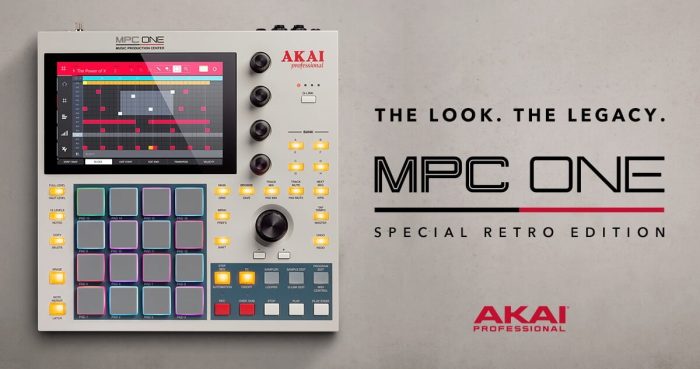

Express your ideas effortlessly and directly with the dedicated knobs and touch keys that eliminate cumbersome drop-down menus.Įverything you expect from a Standalone MPC is here, without compromise. Edit and chop samples with hand gestures on the bright 7-inch touch screen colour display. MPC One delivers a truly empowering hands-on experience, ready for any music production task. The heart and soul of the MPC One is the same multi-core processor as the MPC X, skillfully combined into a compact standalone desktop unit that easily handles the most demanding tasks.

This is truly an uncompromised creative experience. The MPC One packs a lot of features and workflow tools into ONE powerful punch, like beat programming, editing, mixing FX, instruments and so much more. Spend less time hitting roadblocks and take command of your production with our latest addition to the MPC family.ĭon’t let the size fool you. Enter the MPC One, a Music Production Centre engineered to enrich your workflow and create the ultimate standalone production experience. (2) USB-A 3.0 Slots for thumb drives or MIDI ControllersĮxperience the same standalone performance power of the legendary MPC in a smaller footprint.įrom rich melodics and hard-hitting drums to the most infectious grooves, if you expect to get real professional production results you need next-generation tools that act as a natural extension of your creativity.(8) CV/Gate Outputs using 1⁄8-inch (3.5mm) TRS cables (mono TS cable compatible).Mac & PC Controller for MPC Software (Included).7-inch high-resolution multi-touch display.Powerful Multicore System from the MPC Live and MPC X.Mac & PC Controller for MPC Software (included).2 GB RAM, 2GB Onboard Storage, 2GB pre-installed content.Priced at £640, Akai Professional MPC One Special Retro Edition is out now. It also boasts a 7″ Capacitive Multi-Touch Screen, allowing for precise audio sampling and editing. MPC One Retro has the connections to interface with all your favourite gear, making it a powerful median to your music production studio.

He also created the software with his team and credited the circuitry to a team led by English engineer David Cockerell. Whilst Akai were responsible for the engineering and to reduce costs, Linn was responsible for the functionality of the unit, including the panel layout and hardware specification. Roger Linn described the MPC as an attempt to “properly re-engineer” the Linn 9000. 33-years later, Akai introduce the MPC One Retro, aimed to advance the legendary music production centre to work seamlessly with modern music production, whilst sporting its classic design.

First released in 1988, Akai’s MPC-60 and was the result of a unique collaboration with American engineer Roger Linn.


 0 kommentar(er)
0 kommentar(er)
